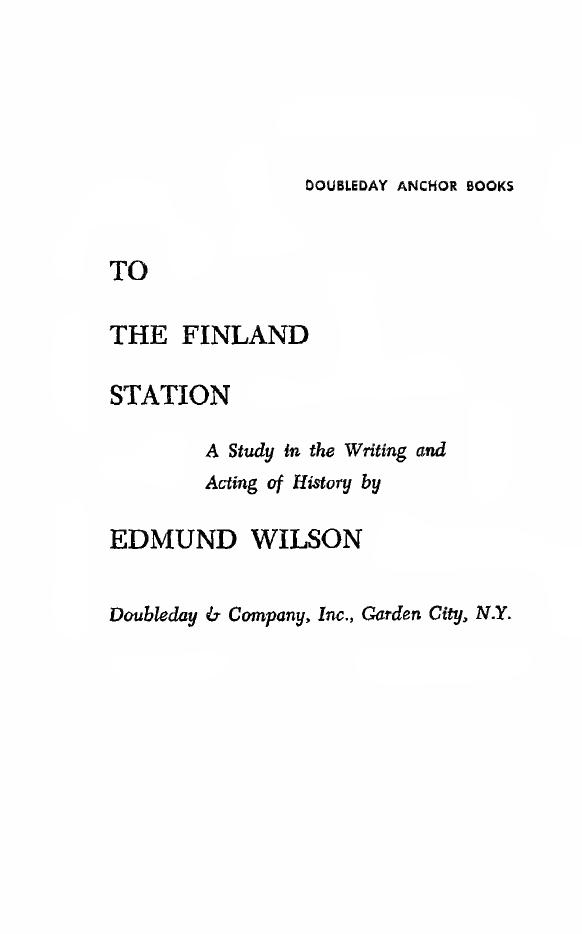To the Finland Station by Edmund Wilson

Author:Edmund Wilson [Wilson, Edmund]
Language: eng
Format: epub, pdf
Publisher: Farrar, Straus and Giroux
Published: 2019-07-25T00:00:00+00:00
14
Historical Actors: Bakúnin
And now a combination of circumstances for a time lifted the life of Marx to a steadier and more dignified plane. Wilhelm Wolff—one of the few German comrades whom Marx and Engels trusted and with whom they remained friends: Marx dedicated Das Kapital to his memory—died in the spring of 1864 and left Marx £800; and in the fall of the same year Engels became a partner in the Ermen & Engels firm, and so was in a better position to send Marx money. Laura Marx became engaged in the summer of 1866 to a young doctor from Cuba named Paul Lafargue of mixed French, Spanish, Negro and Indian blood; and they were married two years later. Jenny married in the autumn of 1872 a French socialist named Charles Longuet, who had had to leave France after the Commune and who lectured at University College in London. His daughters were thus provided for—though his sons-in-law from Marx’s point of view were not politically unexceptionable: “Longuet is the last Proudhonist,” he used to say, “and Lafargue the last Bakuninist—Devil take them!” In the spring of 1867 he completed the first volume of Das Kapital and brought it out in the fall. It was his first real expression of his general ideas in detailed and developed form. The Critique of Political Economy, which he had published in 1859, had baffled even Marx’s disciples by its relentless and opaque abstraction and had made very little impression—though, significantly, it appeared in the same year as Darwin’s Origin of Species (a work which Marx recognized as supplying a “basis in natural science” for the philosophy of Historical Materialism).
And today, after the reaction of a decade, the workers’ rebellion was vigorously reviving, was achieving a new general solidarity. In England the Trade Union movement was taking the place of the Chartists. The growth of the industrial cities had caused a boom in the building and furnishing trades; and the workers in these trades had been left flat by the slump of the later fifties. Much the same thing had been happening in France, where Napoleon III had been rebuilding Paris, and where the followers of Proudhon and Blanqui were organizing the unemployed workers. We have seen how the movement of the Prussian workers had grown up under the leadership of Lassalle. Wilhelm Liebknecht, who had returned from exile in 1862, had converted to Marxist socialism a young turner named August Bebel and, after having been expelled from Prussia in 1865, had been organizing in South Germany a League of German Workers’ Unions. The American Civil War of 1860–65, by shutting off the supply of cotton, had caused a crisis in the textile industry; and the American emancipation of the slaves of 1863, the abolition of serfdom in Russia in 1861, and the Polish uprising of 1863 had been giving a general impetus to liberal and revolutionary ideas. By the July of 1863 an international workers’ movement was beginning to crystallize out. The English trade
Download
This site does not store any files on its server. We only index and link to content provided by other sites. Please contact the content providers to delete copyright contents if any and email us, we'll remove relevant links or contents immediately.
Blood and Oil by Bradley Hope(1567)
Wandering in Strange Lands by Morgan Jerkins(1430)
Ambition and Desire: The Dangerous Life of Josephine Bonaparte by Kate Williams(1395)
Daniel Holmes: A Memoir From Malta's Prison: From a cage, on a rock, in a puddle... by Daniel Holmes(1336)
Twelve Caesars by Mary Beard(1324)
It Was All a Lie by Stuart Stevens;(1300)
The First Conspiracy by Brad Meltzer & Josh Mensch(1174)
What Really Happened: The Death of Hitler by Robert J. Hutchinson(1167)
London in the Twentieth Century by Jerry White(1149)
The Japanese by Christopher Harding(1135)
Time of the Magicians by Wolfram Eilenberger(1132)
Twilight of the Gods by Ian W. Toll(1123)
A Woman by Sibilla Aleramo(1099)
Cleopatra by Alberto Angela(1096)
Lenin: A Biography by Robert Service(1080)
John (Penguin Monarchs) by Nicholas Vincent(1073)
The Devil You Know by Charles M. Blow(1029)
Reading for Life by Philip Davis(1027)
The Life of William Faulkner by Carl Rollyson(995)
